(Just so you know, there may be some affiliate links in this post, but we only recommend items that we believe in and think will benefit you on your travels.)
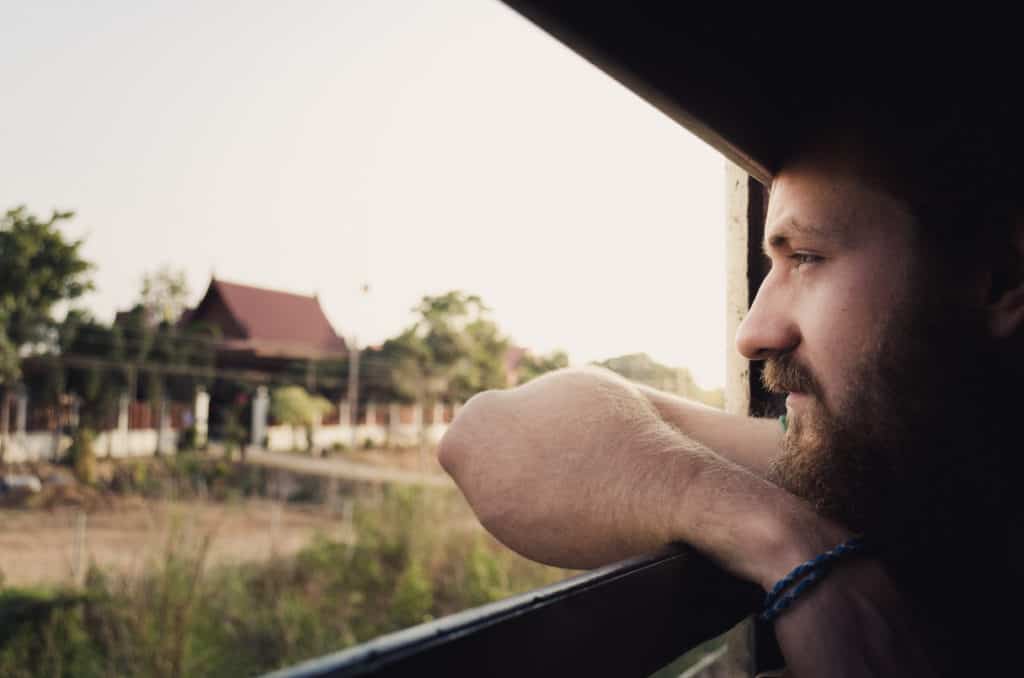
1. Tell us about yourself and sum up your travels for us.
Hey! My name is Jeremy Enns, I’m from Vancouver, BC, but grew up on the prairies. I’ve been away from Vancouver for about 2 months at this point, but as I don’t really have a home and was only in Vancouver for a couple months, in one sense I’ve been traveling for over a year now. Over the course of a few extended trips in the past few years, I’ve been to somewhere between 30 and 40 countries on 5 continents.
2. How have you funded your travels?
While I’m able to make money now while traveling, that wasn’t always the case.
Three years ago I went on a three month cycle tour in Europe through Scandinavia, central Europe and the Balkans, then spent a month solo backpacking further through the Balkans to Istanbul, and then 4 months in SE Asia with my girlfriend at the time. For this trip, I spent a year and a half saving up $20,000 to fund the 8 month trip.
I want to point out that I was working a job that paid $15/hr as a landscaper and I was living in Vancouver, a city that just outranked New York and San Fransisco as the most unaffordable city in which to live in North America. So, no excuses. If you’re wondering, the secret is prioritizing. Every financial decision I made over that year and a half had the bike trip in the back of my mind. I bought cheap food at the grocery store, I didn’t go out to eat, I didn’t go to the movies, or the bar, I biked rather than using transit, I lived with roommates in a shared house, and on and on and on. I also kept detailed spreadsheets projecting out my income month by month and tracking my expenses to the penny. In short, you can find a way to live on pretty much any budget and income level.
Since last year, I’ve been self employed, running my podcast consultation and production company Ascetic Productions, and have been working from the road for a year now, which has been awesome and fulfilling and stressful and scary and so many other emotions.
When I first started out I was making anywhere from $1500 – $3000/mo. A year later, while the floor remains similar depending on the month, the ceiling has greatly expanded, with income ranging from $2000 – $6000/mo. My goal right now is to have my first $10,000 month by April, and be making $10K consistently by next summer.
My business hasn’t changed all that much over the course of the past year. Most of my income comes from client work, consulting, producing and editing podcasts for everyone from solopreneurs to globally recognized brands. The change in income has been due to taking on clients, and raising my prices, probably doubling them. I’ve also started creating digital products, do some video editing work, photograph weddings, engagements, portrait and branding shoots, have a stock photography portfolio, do some freelance writing, and a bunch of other side projects that are unrelated to podcast production.
Over the course of the year I’ve also grown my team by outsourcing some of the client work to freelancers, which has added monthly expenses but allowed me to be more ambitious with the projects I take on and grow the business.
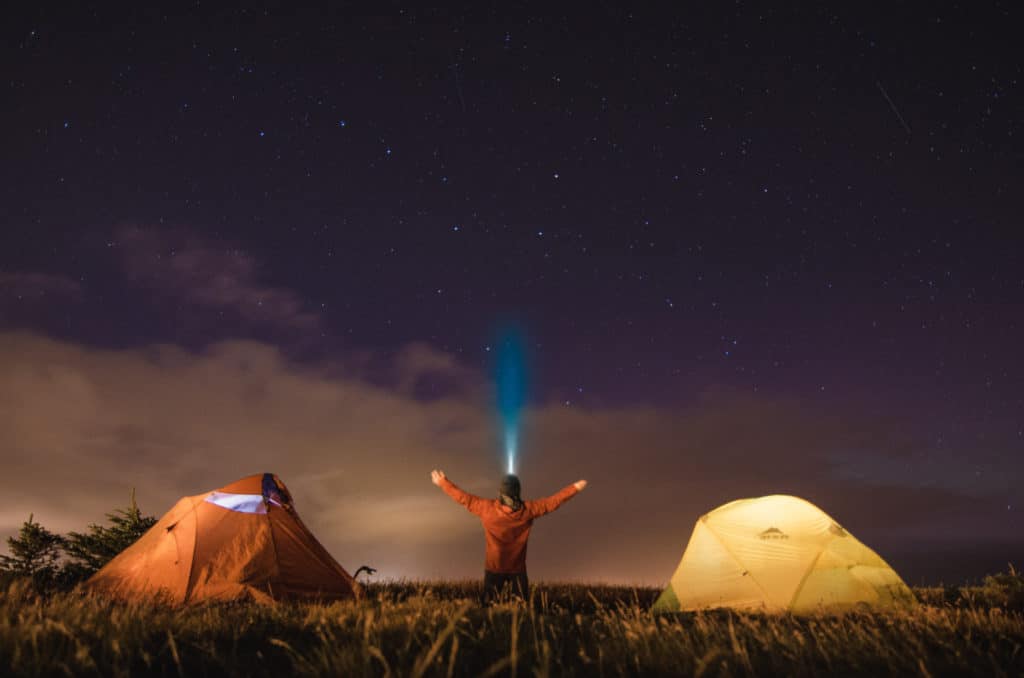
3. Tell us about your budget.
I have a general budget, but I don’t pay a lot of attention to it to be honest. As I don’t really have a home base any more, there’s not really a distinction between home and travel any more, it all just is. My routines are generally the same wherever I am, and as a result I spend about the same amount each month regardless of where I’m living at the time.
While I have a general budget of about $2000 – $2500/mo, I don’t plan around that really. Left to my own devices I would spend very little, so it’s not something that I’m keeping in the back of my mind every day and with every expenditure. It seems like every few months there will be a month where I spend something like $5000, most of that being business expenses. Those months don’t really worry me though, as I know that it’s part of running a business, and will hopefully result in more income down the road.
The biggest aid in keeping my costs down has been tracking every expenditure using Quick Books for my business expenses and an app called Spending Tracker for my personal expenses. For me, it’s not even about the actual total number, but rather the act of knowing that I need to write down every expenditure that has conditioned me to think about what I spend money on.
Aside from that, I’ve conditioned myself over years of traveling and understanding what makes me happy to only spend money on things that actually make me happy. I know now what kinds of purchases make me happy, and live a fairly minimalistic, non-stuff-centric life, which just naturally means I don’t make a lot of day to day impulse buys (although those can be fun).
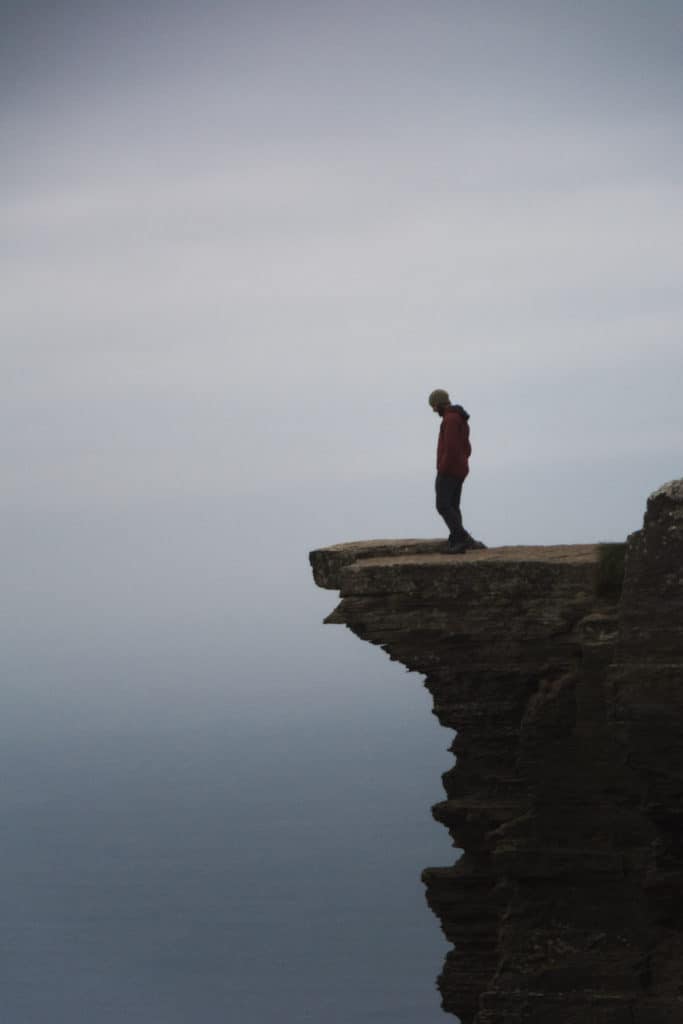
4. What have you learned about money since hitting the road?
Since hitting the road I’ve learned that traveling doesn’t have to be expensive, and that if you get creative, there are a ton of ways to live more cheaply than you would at home. For example, during my bike tour three years ago I averaged spending less than $30/day over three months in Europe including a full month of that in Scandinavia (Iceland, Norway, Sweden, Denmark). Sure that involved free camping off the side of the road most nights (I think we paid for accommodation 5 out of more than 90 nights?), and limiting our transportation costs by cycling everywhere, but it was a great way to spend 3 super cheap months in Europe and see more than 10 countries in the process. I know that kind of travel doesn’t appeal to everyone, but I’ve learned that you can travel pretty much anywhere in the world for less than $30/day if you’re willing to think outside the box and adjust your idea of what “traveling” means.
One of the ways that I’ve adjusted my travel experiences since starting to work on the road is by living like a local rather than traveling like a backpacker. Over the past year, I’ve spent 7 months house sitting, which has been an incredibly rewarding (and cheap) travel experience. Most of the places I’ve house sit are locations I never would have gone to if I had been traveling in that country, like rural England for example. But, I’ve been amazed at the depth of my experiences at these sits, even if most of the time is spent living exactly as I would at home, working 10-12 hours a day and only really going out and sightseeing once a week.
These sedentary and deep local travel experiences then set up periods of more typical travel, going some place new every 3 or 4 days and doing a lot of sightseeing. Over the past year I’ve spent about 4 months doing that type of travel as a compliment to the slow, home base style travel. I’ve found that for me at least, running a business while being on the move constantly is doable, but incredibly draining, and unsustainable long term, at least in a client- and service-based business. On top of that, I like routine and often find that even when traveling at a faster pace, my favorite days are those where I spend 5-6 hours working in a coffee shop and then go sight seeing in the afternoon.
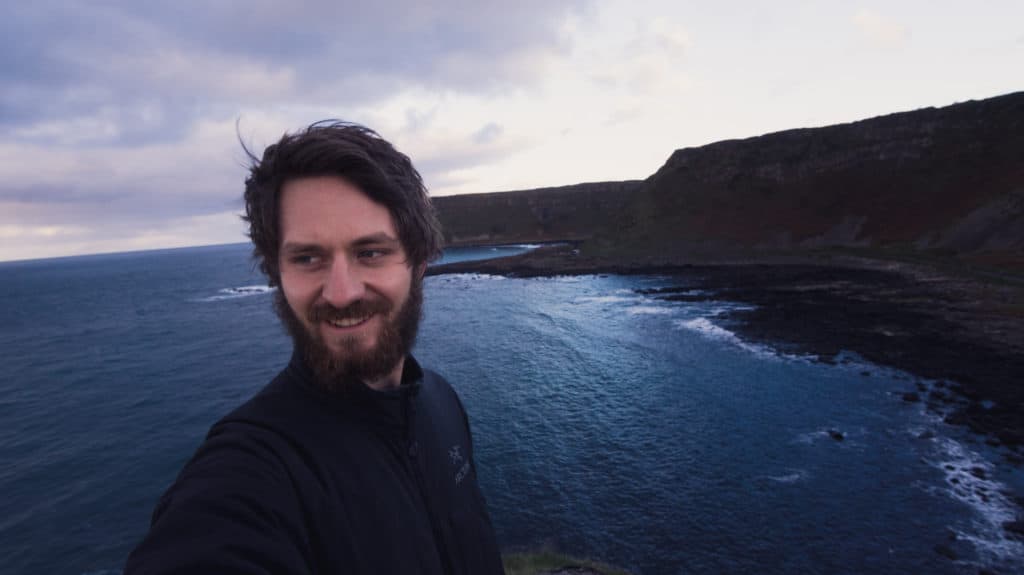
5. What’s your top tip for someone trying to figure out how to make long-term travel financially possible?
In my experience, most people have skills that could be used to work remotely, but that take a considerable mental shift to uncover. When I was starting out with my goal to become location independent, I had an audio engineering and production certificate that I thought was entirely useless. My whole perspective of audio work was that it required a recording studio, very much location independent. When I finally latched onto the idea of podcast production I was amazed at how simple the idea was, but how it had taken me over a year to latch onto.
My tip for uncovering these skills is just to look at what other people have done with similar skills. I knew that people produced podcasts, but I considered that a low-paying job that was beneath my skill level (yep, I was super arrogant about that). That arrogance kept me from seeing that this was actually a viable location independent job, and once I clued in, I realized that there were a ton of people already doing it, and making decent money while working remotely.
If you seriously DON’T think you have any skills that are worth pursuing remotely, then you just so happen to be in luck! We live in an amazing time where there are probably HUNDREDS of online courses ranging from $500 – $1000 (and many much beyond that) that if taken and applied could teach you the skills necessary to start a location independent career within a month! Huzzah! Things like social media management, Facebook ads, Virtual Assisting, Graphic design, and on and on and on.
While there are a TON of options, the trick with any of these is actually applying what you learned. IT IS NOT EASY BY ANY STRETCH OF THE IMAGINATION. But I believe it’s doable, for pretty much anyone. I spent a year working 40 hours a week at my day job and then another 30-40 hours on top of that building my business. I lost a relationship (not solely due to the work load, but along with the intense personal growth over that time, definitely contributed to it), didn’t have time for friends (they were sad but understood and supported what I was working towards), lost friends who weren’t supportive, but made countless new and better friends who have continued to inspire and elevate me the deeper our relationships grow.
In my opinion, few (if any) people can make this radical of a change in their life by remaining the person they are now. Routines, people, expenditures, time allocation, outlook on life and so many other aspects of your current life probably don’t support this new direction, so the biggest thing you can do is to start aligning yourself with elements that DO move you one tiny bit closer to that goal. The fact that you’re reading this interview now is a great sign of how you’re already doing that. It’s probably also a sign that there’s still a long way to go, and that there are many habits and people that still need to be reconciled to make the leap to being able to support a location independent lifestyle. That’s cool; one step at a time and you’ll get there.
Lastly, and simply: I’m sure you’ve heard it before, but the very easiest way to get started is by offering a service. Start looking on UpWork, I got my first client within one week of setting up an account, and from the moment I got that client, I knew it was only a matter of time before I would have enough to quit my day job and hit the road.
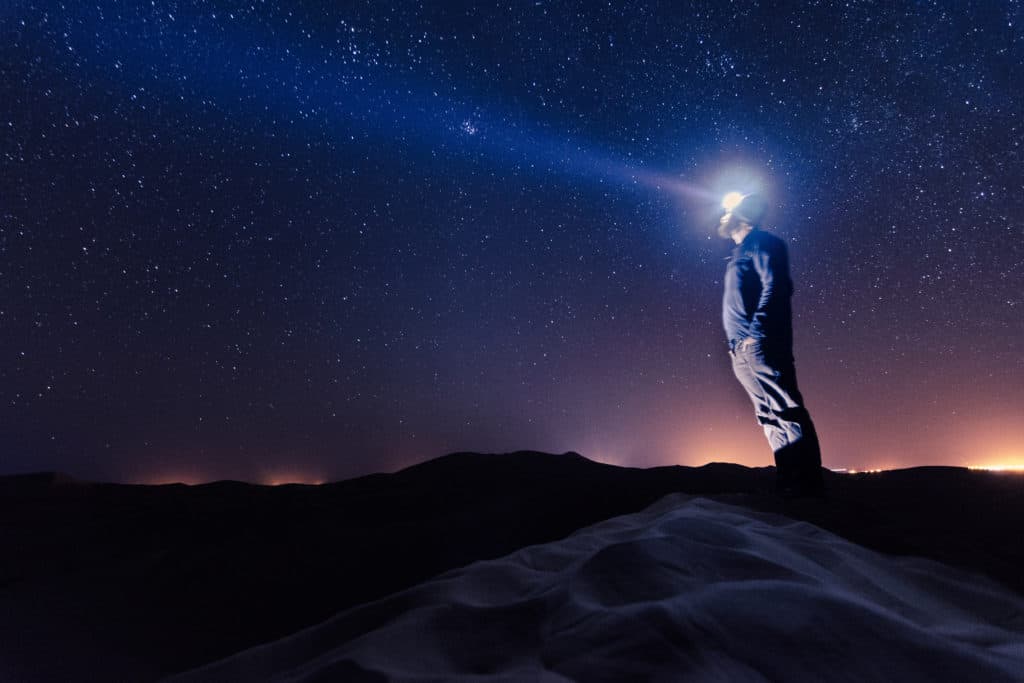
6. If someone wanted to follow in your footsteps, are there any online resources you’d recommend?
I’m a big proponent of online freelancing marketplaces like Fiverr and UpWork. You need to temper your expectations when starting out, but they can be a great way to get your foot in the location independent door.
I’m also a big reader, reading more than 60 books last year, and aiming for around 30 this year. Here’s a list of my favorites and the books that impacted me the most last year.
I also devour podcasts. In the year leading up to quitting my day job, I listened to more than 50 hours per week of podcasts, generally at 1.5X or 2X speed. Some of my favorites are Smart Passive Income w/ Pat Flynn, Online Marketing Made Easy w/ Amy Porterfield, Tropical MBA, Internet Business Mastery, Location Indie, Side Hustle School, and many more.
7. What’s some of your favorite travel gear that enables you to do what you do?
I’m a huge believer that gear is pretty much never as important as we think it is, and that we need way less of it than we probably have. I buy literally everything secondhand, from a 5 year old MacBook pro, to a 6 year old DSLR with used lenses.
The camera and lenses have been drenched by waves and ravaged by sand, the autofocus doesn’t work anymore along with half of the other functions, and one of the lenses is stuck at one focal point. But none of that stuff really matters. Sure, it’s harder to take photos now, but the lack of features has made me a lot more thoughtful and methodical about my photography and videography as well as promoting creativity and problem solving. I’ve found this to be true with almost any creative pursuit.
If there’s one piece of gear I am a firm believer in, it’s hard drives. Always have hard drives. Many, many, many hard drives. I like Seagate and Western Digital portable drives
8. Where can people follow your travels?
People can find out more about my podcasting work at asceticproductions.com.
If there are any podcasters I’d love to have you in my private podcasting Facebook group at cutthebullshitpodcasting.com.
I’m also currently on a quest to raise $10,000 for charity: water for my 27th birthday. You can find out all about that at jeremyenns.com/thinkwater
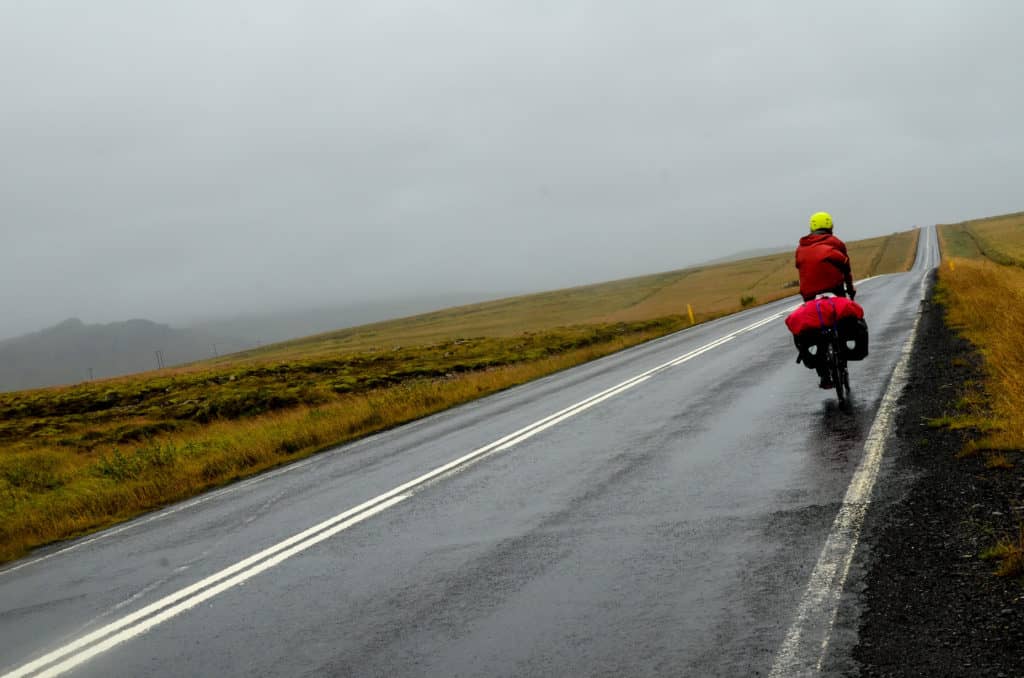
Leave a Reply